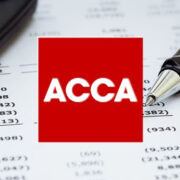Currently Not Collectible (CNC) is a status assigned by the Internal Revenue Service (IRS) to taxpayers who are unable to pay their tax debts. The CNC status means that the IRS has temporarily suspended its collection efforts against the taxpayer because the taxpayer is experiencing financial hardship or other circumstances that make it impossible to collect the debt.
When a taxpayer is designated as CNC, the IRS will not attempt to collect the tax debt, including through wage garnishments, bank levies, or liens, for a certain period. However, the CNC status does not discharge the taxpayer’s obligation to pay the tax debt, and interest and penalties may continue to accrue during the suspension period.
To qualify for CNC status, the taxpayer must provide evidence of financial hardship or other circumstances that make it impossible to pay the tax debt. Examples of such circumstances include unemployment, serious illness or injury, or a natural disaster. The IRS will evaluate the taxpayer’s financial situation to determine whether the taxpayer meets the requirements for CNC status.
The CNC status is not a permanent solution to a tax debt problem. It is a temporary measure that provides relief to taxpayers who are experiencing financial hardship. The IRS may review the taxpayer’s financial situation periodically to determine whether the taxpayer’s ability to pay has changed. If the taxpayer’s financial situation improves, the IRS may remove the CNC status and resume collection efforts.
How Currently Not Collectible Works?
Currently Not Collectible (CNC) is a status that the IRS may grant to taxpayers who are experiencing financial hardship and are unable to pay their tax debt. When the IRS places a taxpayer’s account in CNC status, it temporarily suspends all collection activities, such as bank levies and wage garnishments. IRS non collectible status is a designation that means the taxpayer is currently unable to pay their tax debt.
To qualify for CNC status, a taxpayer must demonstrate to the IRS that they are unable to pay their tax debt and that doing so would create a financial hardship. The IRS will review the taxpayer’s financial information, including their income, expenses, assets, and liabilities, to determine whether they meet the criteria for CNC status.
While a taxpayer’s account is in CNC status, interest, and penalties will continue to accrue on their tax debt. However, the IRS will not take any further collection actions unless the taxpayer’s financial situation improves and they become able to pay their tax debt.














Comments